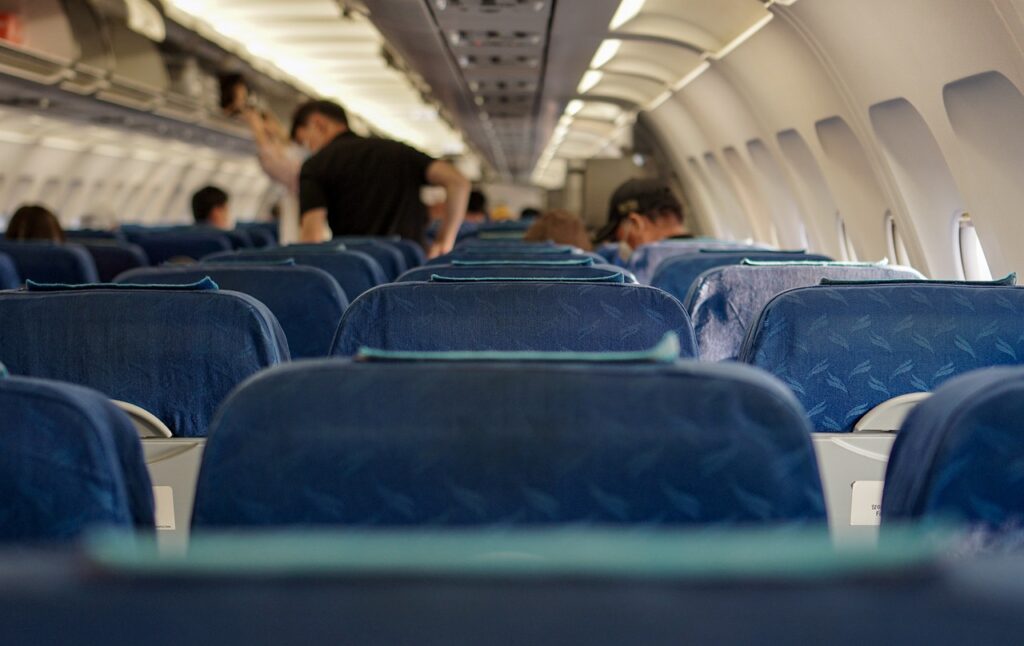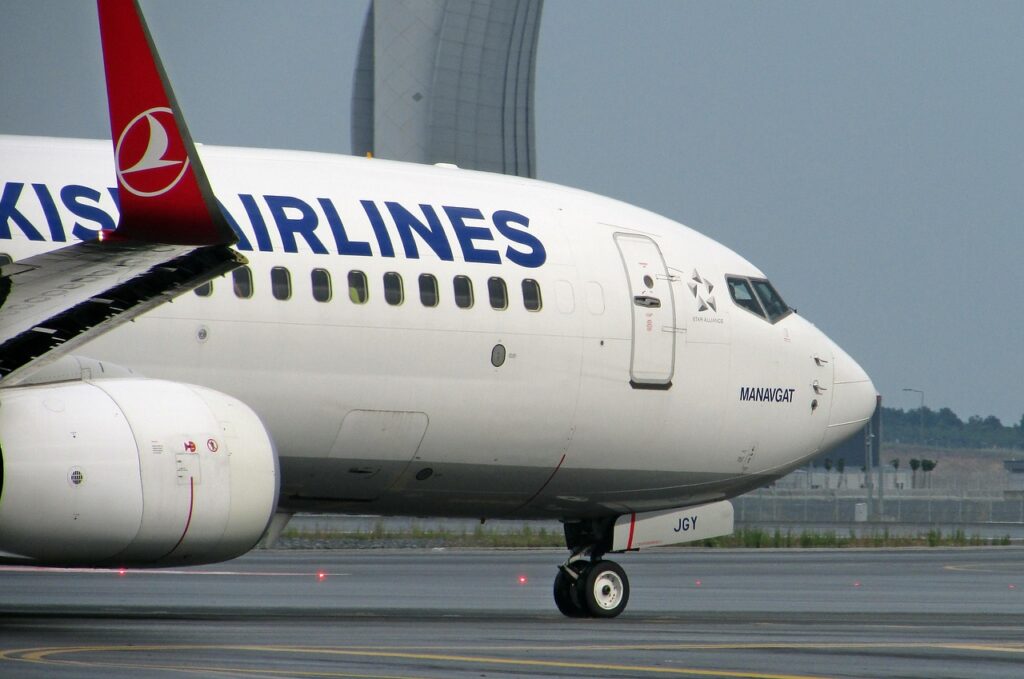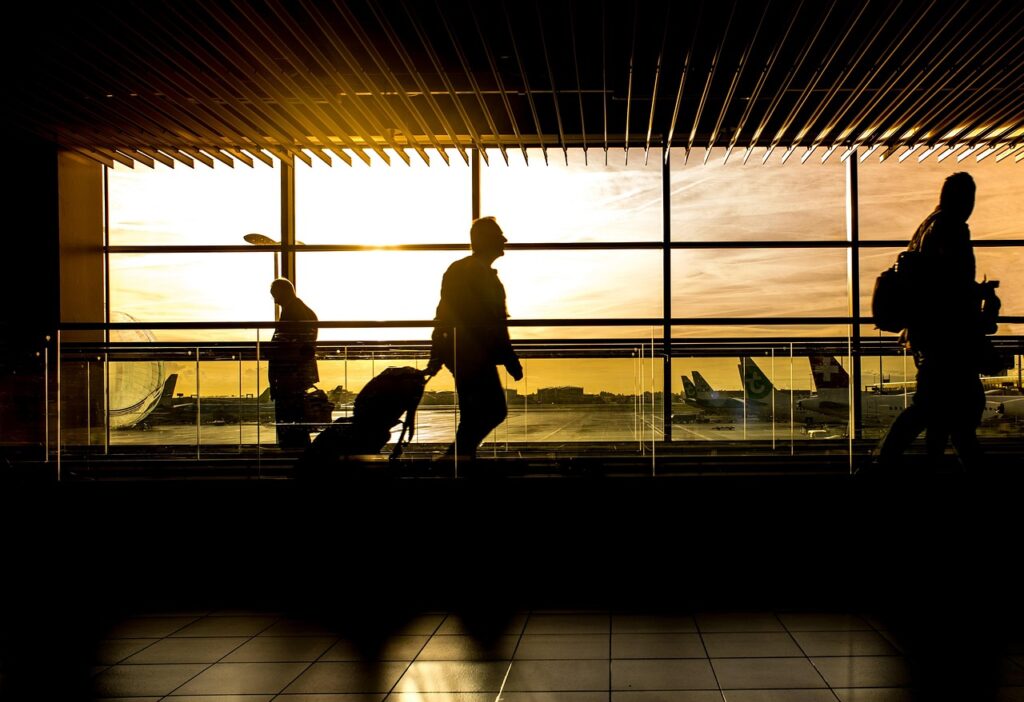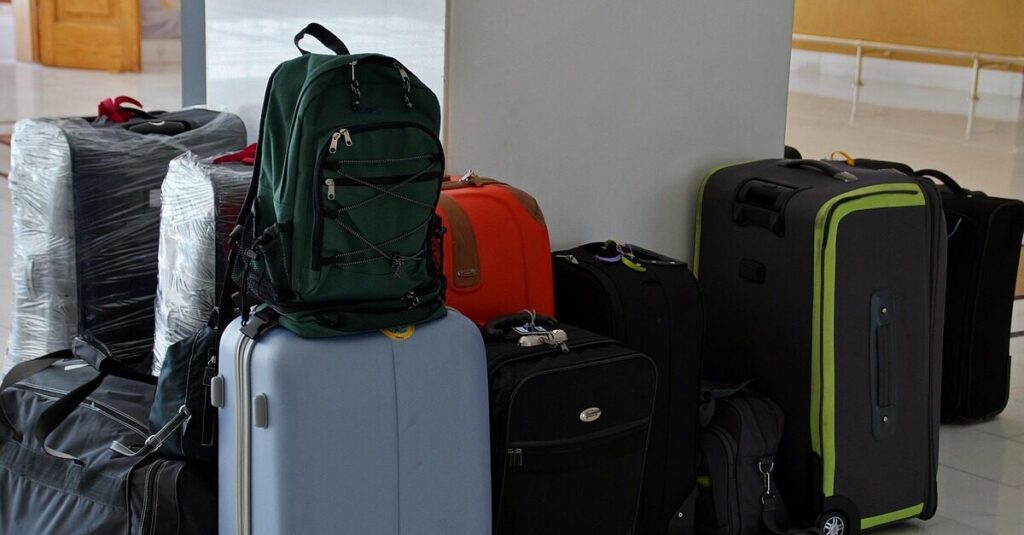Free checked baggage used to be a basic expectation for most travelers. In 2025, that expectation is vanishing fast. More airlines are quietly removing free checked baggage from standard fare classes, leaving passengers surprised at the airport. This shift isn’t just happening with low-cost carriers—it’s spreading across full-service airlines globally.In this article, we explore the growing trend of airlines removing free checked baggage allowance in 2025.
We also explain how it affects travelers, how fare classes are changing, and what you can do to avoid unexpected baggage fees.
A Global Shift in Airline Baggage Policies
The removal of free checked baggage is not a new idea, but 2025 has seen a major acceleration. Airlines are quietly adjusting their fare structures, making checked baggage optional rather than included. While some changes are announced, many are simply rolled into new fare tiers like “Basic Economy” or “Lite.”
This industry-wide shift reflects a growing strategy to unbundle services and increase revenue. It allows airlines to advertise cheaper base fares while charging more for add-ons, including bags.
In Europe, low-cost airlines like Ryanair and Wizz Air now earn up to 40% of their total revenue from add-ons, including luggage. In North America, baggage fees brought in $7.27 billion in 2024. In early 2025, these fees accounted for nearly 3% of total airline revenue, with further growth projected.
Why Are Airlines Removing Free Checked Baggage in 2025?
Airlines are businesses. In 2024, U.S. airlines earned over $7.27 billion in baggage fees alone. Globally, total baggage fee revenue exceeded $33 billion. In 2025, these figures are expected to rise again. Airlines are optimizing profits by removing free checked baggage and turning it into an extra charge.
The model works like this: show a low fare online, then make passengers pay more for bags, seats, meals, and changes. This approach makes tickets look cheaper, even if the final price is much higher.
In 2025, dynamic pricing of baggage is also becoming common. JetBlue, for example, uses a surge-pricing model where baggage fees increase during peak travel periods. Frontier and Spirit are exploring similar approaches.
What Is Basic Economy, and Why It Matters?

Basic Economy is the lowest fare class offered by many airlines. It was introduced to compete with budget carriers and give passengers the cheapest possible ticket price. However, these fares come with many restrictions. Basic Economy often excludes free checked baggage, seat selection, flight changes, and even full mileage accrual.
In 2025, Basic Economy plays a major role in how airlines remove free checked baggage. It’s the most common fare class where baggage is no longer included. Travelers often choose it because it’s the cheapest, only to realize later that they must pay $60–$100 more for luggage. This leads to frustration and unexpected travel costs.
Understanding Basic Economy is essential for making informed booking decisions. If you want a seat choice, carry-on, or checked bag, you may end up paying more than if you had booked a regular Economy fare. Airlines use this fare class to upsell travelers into higher categories once they realize what’s missing.
Airline-by-Airline Breakdown of Baggage Policies in 2025
Delta Air Lines
Does Delta basic economy include checked bag? Delta Air Lines does not offer free checked baggage with its Basic Economy fare on either domestic or international routes. In 2025, Delta expanded the number of routes where baggage is no longer included, catching many passengers off guard. According to Delta’s 2025 fee schedule, passengers flying Basic Economy within the U.S. are charged $35 for the first checked bag and $45 for the second. For international routes, the first checked bag can cost up to $75.
United Airlines
United Airlines has removed free checked baggage from its Basic Economy fares for several years. In 2025, baggage fees for transatlantic routes increased, with the first checked bag costing up to $75. Travelers must pay close attention to the fare class and route details.
American Airlines
American Airlines continues to exclude checked baggage from its Basic Economy fares. As of 2025, the first checked bag costs $35 on domestic routes and $75 on transatlantic flights. Some short-haul fares from the U.S. to Central America also exclude bags unless booked as Main Cabin or higher. The airline’s website warns that bag fees may be higher at the airport. Frequent flyers or credit card holders may still access one free bag.
Emirates
In 2025, Emirates‘ Special fares offer the lowest ticket prices but do not include any checked baggage. A single checked bag (up to 23kg) can cost between $40 and $70 depending on the route and booking time. Saver, Flex, and Flex Plus fares continue to include checked baggage. This shift has impacted even routes between Europe and South Asia, where baggage inclusion was once standard.
Qatar Airways
Qatar Airways‘ Economy Lite fare class now dominates pricing on short- and medium-haul routes. These fares exclude checked baggage entirely. Adding a single 23kg bag costs between $50 and $75 depending on region and timing. For example, Doha to Istanbul baggage fees now apply to Lite fares, with baggage included only in Classic, Convenience, and Comfort classes.
Lufthansa and Group Airlines
Lufthansa, SWISS, and Austrian Airlines have aggressively promoted their Economy Light fares in 2025. These fares exclude checked luggage, with add-on fees ranging from €30 to €60 for the first bag, even on long-haul routes. A flight from Frankfurt to New York under Economy Light requires a €50 baggage fee unless upgraded to Economy Classic.
British Airways
British Airways now applies its Basic fare structure across more long-haul routes, including those to the U.S. and Asia. Basic fares offer no checked baggage, with add-on charges between £45 and £65 each way. Baggage is included only in Standard, Plus, or Business fares. The airline’s policy is consistent with its transatlantic partner, American Airlines.
Etihad Airways
Etihad Airways‘ Hand Baggage Only fares apply on key routes like Abu Dhabi–Cairo and Abu Dhabi–Mumbai. These fares include just 7kg of cabin luggage. Adding a 23kg checked bag costs $50–$90 depending on the destination. Saver and Value fares continue to include baggage, but discounts have pushed travelers into these restricted tickets.
Turkish Airlines
Turkish Airlines’ EcoFly fare excludes checked baggage on both domestic and international routes. A 20kg bag added to an EcoFly ticket from Istanbul to London costs €30 if booked online, but more if paid at the airport. Other fare classes—ExtraFly and PrimeFly—include one or two bags. The airline warns passengers that changes apply even to previously inclusive routes.
JetBlue
JetBlue baggage policy is not very different as well. It charges $35 for the first checked bag and $50 for the second. On flights to Europe, baggage fees start at $60 and go as high as $100. In 2025, JetBlue adopted dynamic pricing for baggage based on season and demand, adding complexity for passengers.
Air Canada
In January 2025, Air Canada quietly eliminated checked bags from certain trans-Pacific fares. Now, passengers must pay $84 for one bag or $112 for two. This unbundling strategy mirrors similar moves by U.S. and European carriers.
Air France
Air France’s Light fares now come without checked luggage. Passengers must pay €25 to €40 per bag depending on whether it’s booked online or at the airport. This pricing model applies even on long-haul flights to North America and Asia.
Which Airlines Still Include Checked Bags in 2025?

Some airlines still offer checked bags in select fare classes, but these inclusions are becoming rare. Travelers searching for airlines with free checked baggage are now face confusing and inconsistent policies across the industry.
Japan Airlines (JAL) and All Nippon Airways (ANA) typically include one or two checked bags in their international economy fares. For example, ANA’s “Economy Basic” on routes from Tokyo to London still includes two 23kg checked bags in mid-2025. However, their “Special Discount” fares, available during off-peak seasons, have started excluding luggage unless added for an extra fee.
Alaska Airlines provides one free checked bag to Mileage Plan elite members and those with their co-branded credit card. In 2025, the benefit still applies to both domestic and international codeshare flights, making it a rare exception among U.S. carriers.
Turkish Airlines, while adopting EcoFly fares without baggage, still offers at least one free bag under its ExtraFly and PrimeFly tiers. For example, passengers flying from Istanbul to Frankfurt under PrimeFly receive two bags included by default.
Even among these relatively generous airlines, the trend is shifting. Route-specific changes and fare segmentation mean travelers must now verify baggage inclusion at the time of booking. What used to be a standard feature has become a perk tied to loyalty, fare tier, or credit card status.
In 2025, choosing an airline that includes checked bags depends less on the brand and more on the fare class and destination. Transparency varies widely, and travelers are advised to read fare conditions closely or risk paying $50–$100 per bag.
What Airline Baggage Fees Look Like After May 28, 2025?

With Southwest Airlines ending its decades-long free baggage policy starting May 28, 2025, the industry has fully embraced the pay-for-bags model. Other carriers are expected to follow. Airline baggage fees after May 28, 2025 are now part of nearly every travel decision.
Even formerly generous airlines are updating their policies. The focus has shifted from customer experience to revenue per passenger. Travelers booking after May 28 need to check if the fare they choose includes luggage. If not, they can expect to pay extra.
According to the U.S. Bureau of Transportation Statistics, baggage fees collected by U.S. carriers in Q2 2025 rose 12% year-over-year following Southwest’s policy change. That amounts to over $1.8 billion in one quarter alone. On average, a checked bag now costs $35 to $75 depending on the route and airline.
Southwest Airlines, once the only U.S. carrier to offer two free checked bags, now charges $35 for the first bag and $50 for the second on most domestic flights. This policy shift applies to tickets purchased on or after May 28, 2025.
Other airlines reacted quickly. Alaska Airlines introduced new fare categories that exclude baggage for economy-tier travelers. JetBlue raised peak-season bag fees by up to 25% in June 2025. Delta added baggage charges to previously inclusive routes, such as New York to San Juan.
Internationally, budget carriers like easyJet and Wizz Air launched summer surcharges on baggage weighing over 20kg. Some long-haul airlines, such as Qatar Airways and Emirates, restructured fare classes shortly after May to shift more customers into baggage-free tiers.
Travelers should now assume that all low-fare tickets post–May 28 come without a bag. Airline baggage fees after May 28, 2025, have become a critical part of total trip cost planning.
Does Basic Economy Include Checked Bag in 2025?
Does Basic Economy include checked bag in 2025? The answer is often no. Most Basic Economy tickets across U.S. and international carriers do not include a checked bag. Some don’t allow a carry-on either.
Airlines use Basic Economy fares as a way to advertise low prices while removing amenities. For instance, American Airlines charges $35 for a first checked bag on domestic Basic Economy, and $75 on transatlantic routes. Delta and United follow a similar pattern, with bags excluded from Basic Economy and only included in Main Cabin or higher.
British Airways and Lufthansa offer long-haul Basic fares with no luggage. In these cases, a single checked bag may cost £65 or €50 each way. Travelers booking through third-party websites often miss these conditions, leading to airport check-in surprises.
As more airlines remove checked baggage from Basic Economy fares, travelers are adjusting how they book flights. Instead of relying on traditional fare assumptions, many now explore add-ons and upgrades before checkout. According to the Skyscanner Horizons Report (November 2022), interest in baggage upgrades surged by 100%, while fare upselling behavior jumped by 750%. These figures highlight a growing trend: passengers are actively searching for ways to restore basic services like luggage that used to be included. The rise in these behaviors suggests frustration with stripped-down fare models and a demand for pricing clarity.
So, when booking Basic Economy in 2025, passengers must check the baggage policy in advance—or risk paying more than they budgeted for.
Passengers choosing these tickets are the most affected by the trend of airlines removing free checked baggage allowance in 2025. The appeal of a cheap fare vanishes when you add a $75 bag charge each way.
Regional Breakdown: Baggage Trends by Market
United States and Canada
In North America, the rise of Basic Economy has made checked baggage increasingly rare without paying extra. Airlines like United, Delta, American, and Air Canada all use segmented pricing, with the lowest fares often lacking both seat selection and baggage. In 2024, U.S. airlines earned $7.27 billion in checked baggage fees according to a report by Economic Times.
Europe
In Europe, low-cost airlines such as Ryanair, Wizz Air, and EasyJet were pioneers of pay-per-bag models. By 2025, these carriers derive up to 40% of their revenue from ancillary fees, including baggage. Ryanair charges €25–€50 per bag depending on route and timing. British Airways has adopted a similar model on long-haul Basic fares, prompting traveler frustration. Lufthansa Group carriers now apply Economy Light fares with no luggage to even flagship routes.
Middle East
Carriers like Emirates, Qatar Airways, and Etihad have introduced fare classes such as Special or Lite that exclude checked bags entirely. Emirates now charges $40–$70 for a 23kg bag on certain routes. Etihad’s Hand Baggage Only fare covers key South Asian destinations with luggage add-ons starting at $50. Qatar’s Lite fares dominate regional pricing, even between Gulf hubs.
Asia Pacific
In Asia, full-service airlines have begun mimicking LCC models. Scoot, AirAsia, and Cebu Pacific already charged for all bags. But even ANA and Singapore Airlines have introduced “Lite” fares that remove free bags in specific routes. China Southern has followed suit for intra-Asia travel, where competition drives fare simplification.
How Travelers Can Avoid Baggage Fees in 2025?

There are still ways to save. Travelers can:
- Join airline loyalty programs
- Get airline-branded credit cards
- Book premium or flexible fares
- Choose carriers and fare types that include bags
Travelers should also use comparison tools that show the full cost of flying, including baggage. Many search engines now allow you to filter by “baggage included.”
Some countries, like those in the EU, are considering regulating baggage fee transparency. If passed, airlines could be required to show full prices—including bags—upfront.
Reading the fare conditions carefully is essential. Don’t assume a ticket includes luggage—even on long-haul flights.
Conclusion: Read Before You Book
The days of assuming your airline ticket includes a checked bag are over. Airlines removing free checked baggage allowance in 2025 is no longer a surprise—it’s the norm. Travelers must stay alert, compare fare classes, and read the fine print.
Whether you’re flying domestic or international, Basic Economy or Lite fares may cost you more than you expect. Knowing what’s included before booking can save both money and frustration.
In 2025, baggage isn’t just luggage—it’s business.

